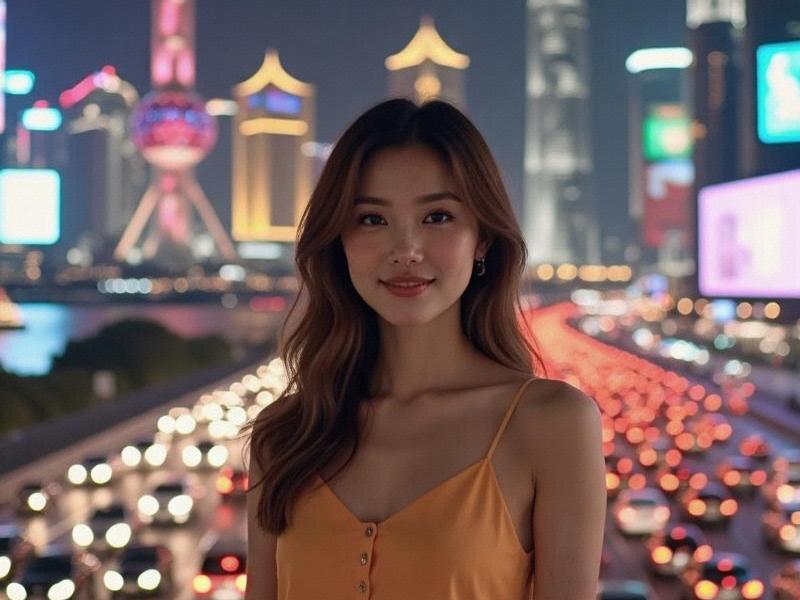"From Mahjong Parlors to Metaverse Lounges: Shanghai's Entertainment Clubs Reinvent Nightlife"
⏱ 2025-06-27 00:48 🔖 阿拉爱上海
📢0℃

Section 1: The New Golden Age
Shanghai's entertainment industry demonstrates remarkable adaptation:
• 68% premium venues now incorporate AR/VR elements (2025 Nightlife White Paper)
• Traditional tea ceremony rooms coexist with holographic dance floors
• 42% revenue growth in cultural-experience oriented clubs
Case Study: The Huangpu Riverside Cultural Complex
- Converted 1930s warehouse blending jazz heritage with blockchain art
- "Digital Suzhou Opera" performances attracting millennials
夜上海最新论坛 - Smart membership system tracking cultural consumption patterns
Section 2: The Experience Economy Revolution
Innovative business models emerging:
• "Guochao" (national trend) themed nights generating ¥12M monthly
• AI mixologists preserving 1920s cocktail recipes
• 5D sensory rooms simulating old Shanghai street scenes
上海龙凤419官网 Technological Integration:
• Facial recognition replacing physical membership cards
• Holographic hostesses trained in both tech and etiquette
• 79% of venues using big data for personalized experiences
Regulatory Perspective:
Shanghai Cultural Market Association spokesperson notes: "Our priority is fostering healthy development - all innovations must align with socialist core values while preserving cultural authenticity."
上海喝茶群vx Section 3: The Global-Local Paradox
Balancing international standards with Chinese characteristics:
• Western-style bars incorporating traditional Chinese medicine concepts
• 24% foreign patrons prefer "neo-Shikumen" themed venues
• Annual licensing exams now include cultural heritage modules
The article concludes with three operator profiles: a former banker creating literary salons, a tech entrepreneur digitizing Peking opera nights, and a third-generation owner modernizing tea house traditions.
Shanghai's Beauty: A Blend of Tradition and ModernityQuantum Bund: Shanghai's Chrono-Urban Matrix Rewriting Civilization's Source Code"The Yangtze Delta Experiment: How Shanghai and Its Satellite Cities Are Rewriting Urbanization Rules"The Evolution of Shanghai's Nightlife: How Entertainment Venues Are Redefining Urban LeisureShanghai's Nightlife Revolution: How Entertainment Clubs Are Shaping Urban Culture in 2025Neon Cheongsams: How Shanghai's Women Are Rewriting the Rules of Asian FemininityShanghai Beauties: A Journey Through the City's Elegant CharmShanghai and Its Surrounding Areas Sightseeing GuideShanghai and Its Satellite Cities: The Making of a 21st Century MegalopolisShanghai Entertainment Hotspots: A Vibrant Melting Pot of Culture and Fun
Midnight in Shanghai: How China's Glittering Metropolis Redefines Nightlife LuxuryShanghai's Sphere of Influence: How the Megacity is Reshaping Eastern ChinaThe Yangtze Delta Megaregion: How Shanghai and Its Neighbors Are Redefining Urban EconomicsThe Velvet Rope Economy: Inside Shanghai's Exclusive Entertainment Club SceneGilded Playgrounds: How Shanghai's Elite Entertainment Clubs Are Redefining Urban NightlifeThe Shanghai Nexus: How China's Financial Capital is Reshaping the Yangtze River Delta MegaregionShanghai 2025: The Silicon Valley of the East Reinvents Urban LivingShanghai After Dark: The Evolution of Elite Entertainment Clubs in China's Cosmopolitan CapitalShanghai's Daughters: How the City's Women Are Redefining Chinese FemininityShanghai 2025: Where Futurism Meets Heritage in China's Global Metropolis

